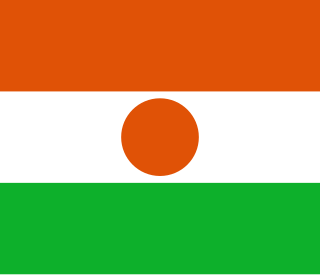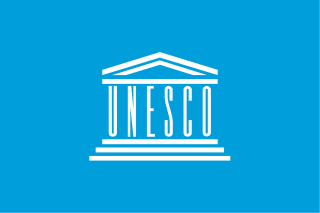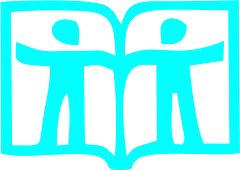
World Heritage Sites are landmarks and areas with legal protection under an international treaty administered by UNESCO for having cultural, historical, or scientific significance. The sites are judged to contain "cultural and natural heritage around the world considered to be of outstanding value to humanity".

A pamphlet is an unbound book. Pamphlets may consist of a single sheet of paper that is printed on both sides and folded in half, in thirds, or in fourths, called a leaflet or it may consist of a few pages that are folded in half and saddle stapled at the crease to make a simple book.

Harlow Shapley was an American scientist, head of the Harvard College Observatory (1921–1952), and political activist during the latter New Deal and Fair Deal.

International Mother Language Day is a worldwide annual observance held on 21 February to promote awareness of linguistic and cultural diversity and to promote multilingualism. First announced by UNESCO on 17 November 1999, it was formally recognized by the United Nations General Assembly with the adoption of UN resolution 56/262 in 2002.

World Book Day, also known as World Book and Copyright Day or International Day of the Book, is an annual event organized by UNESCO to promote reading, publishing, and copyright. The first World Book Day was celebrated on 23 April in 1995, and continues to be recognized on that day. A related event in the United Kingdom and Ireland is observed in March. On the occasion of World Book and Copyright Day, UNESCO along with the advisory committee from the major sectors of the book industry, select the World Book Capital for one year. Each designated World Book Capital City carries out a program of activities to celebrate and promote books and reading. In 2024, Strasbourg was designated as the World Book Capital.

The World Book Capital (WBC) is an initiative of UNESCO which recognises cities for promoting books and fostering reading for a year starting on April 23, World Book and Copyright Day. Cities designated as UNESCO World Book Capital carry out activities with the aim of encouraging a culture of reading in all ages and sharing UNESCO's values. The nomination does not provide a financial prize.

Federico Mayor Zaragoza is a Spanish scientist, scholar, politician, diplomat, and poet. He served as the Director-General of the United Nations Educational, Scientific, and Cultural Organization (UNESCO) from 1987 to 1999. After his tenure as Director-General, he continued to participate in various peace-related organizations, such as the Foundation for a Culture of Peace and the International Decade for the Promotion of a Culture of Peace and Non-Violence for the Children of the World, as a member of their honorary boards. Additionally, he serves as the honorary chairman of the Académie de la Paix.

The World Digital Library (WDL) is an international digital library operated by UNESCO and the United States Library of Congress.
Former Iranian president Mohammad Khatami introduced the idea of Dialogue Among Civilizations as a response to Samuel P. Huntington's theory of a Clash of Civilizations. The term was initially used by Austrian philosopher Hans Köchler who in 1972, in a letter to UNESCO, had suggested the idea of an international conference on the "dialogue between different civilizations" and had organized, in 1974, a first international conference on the role of intercultural dialogue with the support and under the auspices of Senegalese President Léopold Sédar Senghor.

Education in Costa Rica is divided in 3 cycles: pre-education, primary education, and secondary school, which leads to higher education. School year starts between the second and third week of February, stops at the last week of June, it continues again between the third and fourth week of July and finishes between the last week of November and the second week of December. Preschool and basic education are free to the public. Elementary and secondary school are both divided in two cycles. Since 1869, education is free and compulsory.
This page lists the number of book titles published per country per year from various sources. According to UNESCO, this is an important index of standard of living, education, and of a country's self-awareness. No standardised way to track the number of books published exists which can make it difficult to compare countries or track the industry as a whole. One method is to track how many International Standard Book Numbers (ISBNs) are registered by each country.
The International Literacy Association (ILA), formerly the International Reading Association (IRA), is an international global advocacy and member professional organization that was created in 1956 to improve reading instruction, facilitate dialogue about research on reading, and encourage the habit of reading across the globe.

The World Heritage Convention, formally the Convention Concerning the Protection of the World Cultural and Natural Heritage, is an international treaty signed on 23 November 1972, which created the World Heritage Sites, with the primary goals of nature conservation and the preservation and security of cultural properties. The convention, a signed document of international agreement, guides the work of the World Heritage Committee. It was developed over a seven-year period (1965–1972).

Education in Niger, as in other nations in the Sahelian region of Africa, faces challenges due to poverty and poor access to schools. Although education is compulsory between the ages of seven and fifteen, with primary and secondary school leading into optional higher education, Niger has one of the lowest literacy rates in the world. With assistance from external organizations, Niger has been pursuing educational improvement, reforming how schools utilize languages of instruction, and exploring how the system can close gender gaps in retention and learning.

The United Nations Educational, Scientific and Cultural Organization is a specialized agency of the United Nations (UN) with the aim of promoting world peace and security through international cooperation in education, arts, sciences and culture. It has 194 member states and 12 associate members, as well as partners in the non-governmental, intergovernmental and private sector. Headquartered in Paris, France, UNESCO has 53 regional field offices and 199 national commissions.

UNIMA, an international non-governmental organization that brings together puppeteers and puppet enthusiasts to develop and promote the art of puppetry, was founded in Prague in 1929. In 1981, the French puppeteer Jacques Félix moved UNIMA's headquarters to Charleville-Mézières, France, location of the Festival Mondial des Théâtres de Marionnettes since 1972. UNIMA is affiliated to UNESCO and it is a member of the International Theatre Institute. UNIMA is affiliated with the International Theatre Institute and is present in 87 countries. Its headquarters is located in Charleville-Mézières.

The Slave Route Project is a UNESCO initiative officially launched in 1994 in Ouidah, Benin. In studying the causes, the modalities and the consequences of slavery and the slave trade, the project seeks to enhance the understanding of diverse histories and heritages stemming from this global tragedy.
The Declaration and Programme of Action on a Culture of Peace was adopted by the United Nations General Assembly on September 13, 1999. This occurred after ten months of negotiations in the context of preparations for the International Year for the Culture of Peace.

Sebiba is the term used in Algeria to designate a festival and the Tuareg people's dance performed on this occasion and accompanied by female drummers in the Sahara oasis of Djanet in the Tassili n'Ajjer region in southern Algeria. The dance originated among the descendants of black African slaves and is part of the celebrations for the Islamic Ashura Festival. The dance was recognized by UNESCO in 2014 for its significance to humanity's intangible cultural heritage.
















